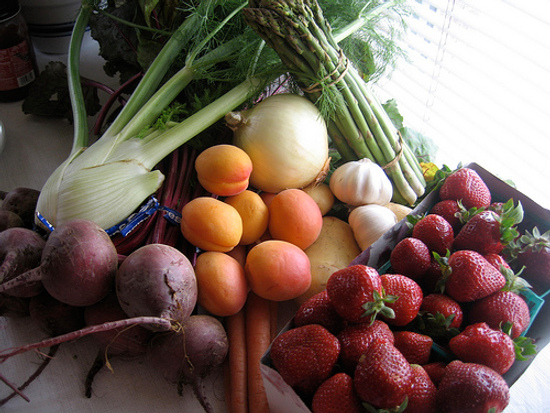
The title of a 2007 article in the journal Nutrition Reviews says it all: Food, Not Nutrients, Is The Fundamental Unit In Nutrition.
We need to shift our focus away from “nutrients” and towards “food” in order to understand the effects nutrition has on health. Why? Because whole foods are so much more complex than nutritional science can understand.
Focusing too narrowly on nutrients has obscured the true value of eating Real Food.
And, as Michael Pollan argued in his latest book, In Defense of Food, nutritionism (the reductive way we’re tempted to think about food in terms of nutrients) is a boon to Industrialized Food:
“No idea could be more sympathetic to manufacturers of processed foods, which surely explains why they have been so happy to jump on the nutritionism bandwagon. Indeed, nutritionism supplies the ultimate justification for processing food by implying that with a judicious application of food science, fake foods can be made even more nutritious than the real thing.”In the opening chapter of her newest book (Real Food For Mother And Baby), Nina Planck makes a similar point:
“Nutritionism has been good for the food companies and supplement sellers ready to profit from government-approved health claims. Orange juice with added calcium and chocolate with added probiotics would not exist if not for the nearly universal acceptance of nutritionism. But it has not been noticeably good for our health….She then takes it a step further, to show just how ridiculous nutritionism can be when we jump on that bandwagon.
“However, you don’t have to count calories, grams of saturated fat, milligrams of vitamin E, micrograms of folic acid, or jillibeters of anything else. I never do. It would be downright wacky to create shopping lists of nutrients. (”Sweetheart, I’m pregnant! Don’t forget complex carbohydrates, lauric acid, and betanine.”) As a nutrition geek, I have a basic understanding of the major nutrients and a few minor ones, but I am still firmly in favor of the tangible material formerly known as food. In our house we call it real food. It’s good for you. It’s good for babies. It’s good for everybody.”Why should we focus on whole foods as they’ve traditionally been eaten? Because if the scientific study of nutrition has taught us anything, it’s that whole, real foods have a complex relationship of nutrients both within themselves (a carrot is more than beta-carotene, a tomato more than lycopene) and with the other foods we serve them with. Nina makes this point in Chapter Two — The Fertility Diet:
“Another reason to eat whole foods is that many nutrients work together. Sperm health improves dramatically when vitamins A and E are eaten together, probably because E prevents oxidation of A. You need vitamin C to absorb iron, and saturated fats extend the use of omega-3 fats. There are countless relationships like this in nutrition. There is no need to remember them. Just eat whole foods in their natural state and in classic combinations, such as leaves with olive oil, or fish with butter, and you’ll get everything you need.“I couldn’t agree more. Even though I study nutrition and am forced to speak about the wonders of certain foods in terms of nutrients, I don’t want any of you to get the wrong idea.
Although I’m glad that nutritional science can help me understand exactly why coconut oil is a great fat, or why grass-fed beef is a healthy food choice, that’s not why I eat these foods.
I eat these foods because they’re Real Food. They taste great. I loved how Nina Planck defined Real Food for us in yesterday’s interview:
“It’s old and it’s traditional.”So simple, really! This is food that your great grandmother would have recognized as food. This is food that has been eaten or prepared this way for hundreds, if not thousands of years.
This post was inspired, in part, by a recent post of Rob Smart’s called Experiencing Food v. Thinking Nutrients.
This post is also part of Kelly The Kitchen Kop’s Real Food Wednesday carnival. For other interesting articles, anecdotes, and stories on Real Food, go check it out!









No comments:
Post a Comment